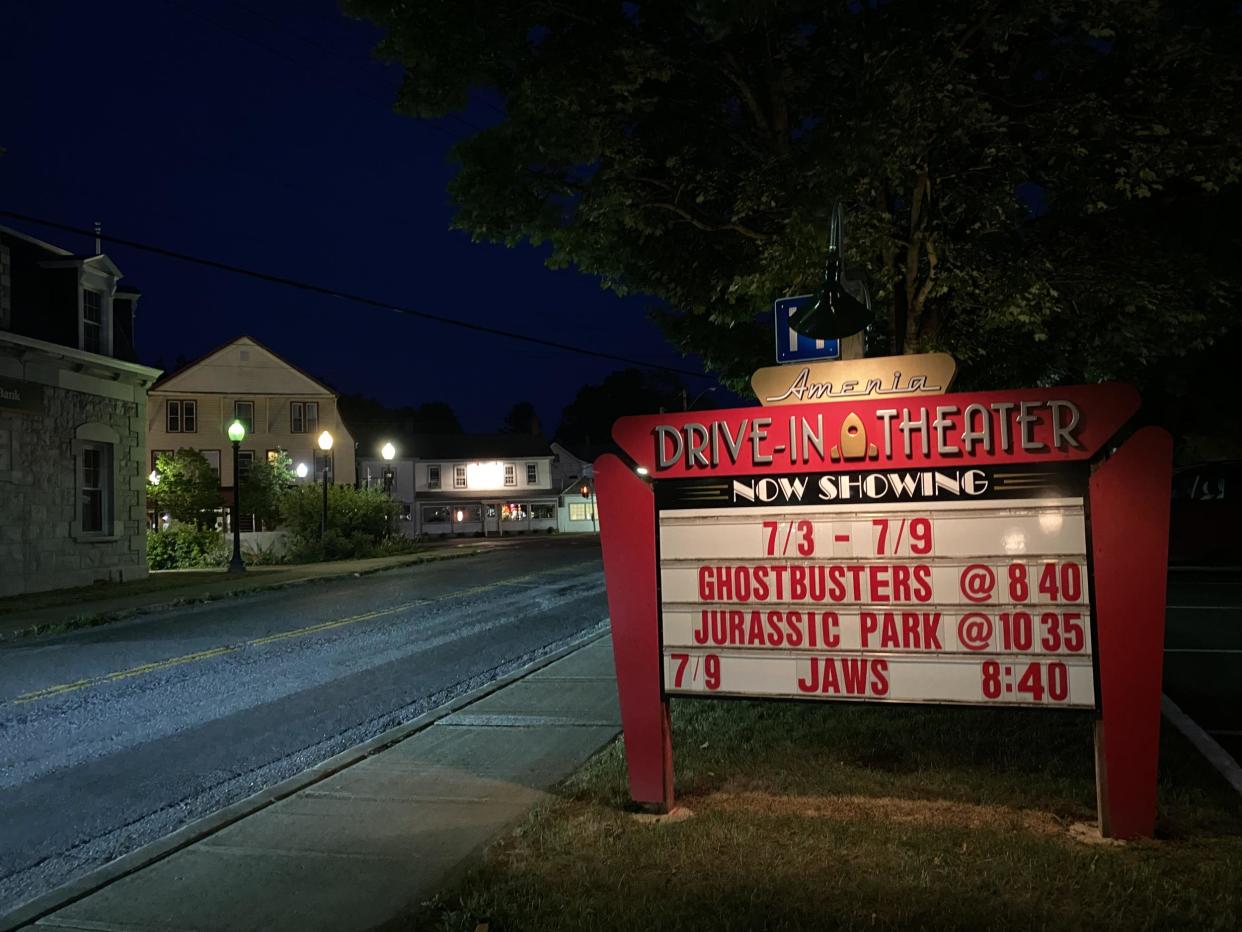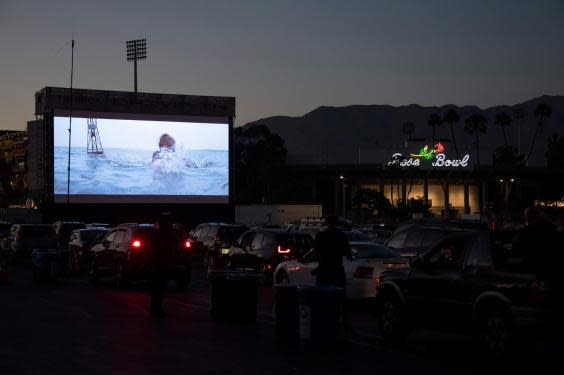‘An American renaissance’: Coronavirus ushers in revival for drive-in cinemas

As dusk draws in over the small town of Amenia, a giant screen flickers to life and illuminates rows of cars in the field below. People are scattered in and around their vehicles: some on the roof, in the trunk and the hood, others on blankets in front. Mosquitoes dart back and forth as the opening credits roll.
The coronavirus has closed cinemas, shuttered studios and cancelled summer blockbusters, but none of that has stopped people from going to the movies. The drive-in cinema, a once-revered staple of American culture, is witnessing a revival.
“In the beginning part of the virus we were shut down for two months. That was super tough. But when we came out of it, there was a big influx of business,” says John Stefanapolous, one of the owners of the Four Brothers Drive-in, in Amenia, upstate New York.
While businesses around the country are struggling to adapt to new working environments brought about by the pandemic, the drive-in is ready-made for social distancing.
At this cinema, movie-goers park at least six feet from each other and can refrain from wearing a mask when they are inside their car. Their food is brought to their door.
“It’s a safe and responsible [place] for people to come out. You’re in the confines of your vehicle most of the time, when you’re out you’re wearing a mask,” he adds.
Even with a reduced capacity — a requirement for reopening their businesses during the pandemic — the family-owned Four Brothers Drive-in says it has seen a 50 per cent increase in customers since it reopened two months ago.
They aren’t the only ones. Retail giant Walmart announced its intention to transform 160 of its car parks into drive-in theatres next month in a partnership with Robert De Niro’s media company Tribeca Enterprises. Drive-in ticket sales are reportedly booming in South Korea and Germany, too.
At a time when almost all public entertainment has been cancelled or postponed, the patrons who made their way to Amenia on this balmy summer night were just grateful for the stimulation.

“I think just being out and feeling a bit like you’re in a community is a good thing, but also you can just go into a car if you need a little space from people,” says Allison O’Shea, a 35-year-old who works in the film industry and set up on the hood of her car in the front row with her partner John, also a filmmaker.
“This still has a community element that you’re all together, experiencing the same movie at the same time,” he says. “We’ve done Zoom movie watching and it’s not the same.
“With [the rise of] Netflix and streaming services, actually going to a movie becomes much more of an event. The drive-in is definitely one of those things. Actually watching the movie isn’t necessarily what it’s about,” he says.
Read more
Cinemas start to reopen in Japan, showing old Hollywood classics
JJ Abrams' secret work on Casper changed the shape of Hollywood
Actor Steve Martin to auction off one of his trademark white suits
Ian Holm: Versatile actor of stage and screen
How Gremlins 2 made a mockery of Hollywood sequels
Michael B Jordan calls on Hollywood to commit to hiring black creators


